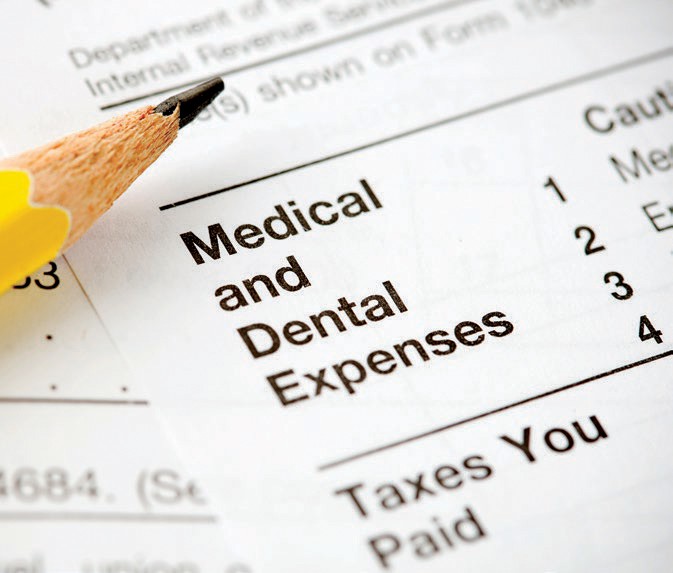Do you run a business from home?

The COVID-19 pandemic changed the landscape of work for a lot of people, as numerous business owners began working from their homes. Many are still working from their home offices, whether full-time or on a hybrid basis. If you’re self-employed and run your business from home, or perform certain functions there, you might be able to claim deductions for home office expenses against your business income. There are two methods for claiming this tax break: the actual expenses method and the simplified method.
How to qualify
In general, a self-employed taxpayer qualifies for home office deductions if part of his or her home is used “regularly and exclusively” as the principal place of business.
If your home isn’t your principal place of business, you may still be able to deduct home office expenses if:
- You physically meet with patients, clients or customers on your premises, or
- You use a storage area in your home (or a separate free-standing structure, such as a garage) exclusively and regularly for business.
Expenses you can deduct
Many eligible taxpayers deduct actual expenses when they claim home office deductions. Deductible home office expenses may include:
- Direct expenses, such as the cost of painting and carpeting a room used exclusively for business,
- A proportionate share of indirect expenses, including mortgage interest, rent, property taxes, utilities, repairs and insurance, and
- Depreciation.
But keeping track of actual expenses can take time and it requires organized recordkeeping.
The simpler method
Fortunately, there’s a simplified method: You can deduct $5 for each square foot of home office space, up to a maximum total of $1,500.
The cap can make the simplified method less valuable for larger home office spaces. Even for small spaces, taxpayers may qualify for bigger deductions using the actual expense method. So tracking your actual expenses can be worth it.
Changing methods
When claiming home office deductions, you’re not stuck with a particular method. For instance, you might have chosen the actual expense method when you filed your 2022 return, but then use the simplified method when you file your 2023 return next year, and the following year switch back to the actual expense method. The choice is yours.
What if I sell the home?
If you sell — at a profit — a home on which you claimed home office deductions, there may be tax implications, though they are beyond the scope of this article. We can explain them to you.
Also be aware that the amount of your deductions is subject to limitations based on the income attributable to your use of the office. Other rules and limitations may apply. But any home office expenses that can’t be deducted because of these limitations can be carried over and deducted in later years.
Different rules for employees
Unfortunately, the Tax Cuts and Jobs Act suspended home office deductions from 2018 through 2025 for employees. Those who receive paychecks or Form W-2s aren’t eligible for deductions, even if they’re currently working from home because their employers don’t provide office space.
We can help you determine if you’re eligible for home office deductions and how to proceed in your situation.
The deductibility of medical expenses

Individual taxpayers may be able to claim medical expense deductions on their tax returns. However, the rules can be challenging, and it can be difficult to qualify. Here are five points to keep in mind:
- You must itemize to claim the deduction and have quite a few expenses. The medical expense deduction can only be claimed to the extent your unreimbursed costs exceed 7.5% of your adjusted gross income. If your total itemized deductions in 2023 will exceed your standard deduction, moving or “bunching” nonurgent medical procedures and other controllable expenses into this year may allow you to exceed the 7.5% floor and benefit from the deduction.
- Health insurance premiums may help. This can total thousands of dollars a year. Even if your employer provides health coverage, you may be able deduct the portion of the premiums that you pay. Long-term care insurance premiums are also included as medical expenses, subject to limits based on age.
- Transportation counts. The cost of getting to and from medical treatments counts as a medical expense. This includes taxi fares, public transportation or using your own car. Car costs can be calculated at 22 cents a mile for miles driven in 2023, plus tolls and parking. Alternatively, you can deduct certain actual costs (such as for gas and oil) that directly relate to your medical transportation.
- Controllable costs are key. These include the costs of glasses, hearing aids, dental work, mental health counseling and other ongoing expenses in connection with medical needs. Purely cosmetic expenses generally aren’t eligible. Prescription drugs (including insulin) qualify, but over-the-counter aspirin and vitamins don’t. Neither do amounts paid for items and treatments that are illegal under federal law (such as medical marijuana), even if state law permits them. The services of therapists and nurses can qualify if they relate to medical conditions.
- Don’t overlook smoking-cessation and weight-loss programs. Amounts paid for participating in smoking-cessation programs and for prescribed drugs designed to alleviate nicotine withdrawal are deductible. However, nonprescription nicotine gum and patches aren’t. A weight-loss program is deductible if undertaken as treatment for a disease diagnosed by a physician. Deductible expenses include fees paid to join a program and attend periodic meetings. The cost of diet food isn’t deductible.
Still Unsure?
The IRS Publication 502 provides complete details on this topic. Or contact us with questions.
Don’t get carried away by a windfall
Receiving a sudden and sizable influx of cash may seem like a dream come true. It can be, but many people get carried away by a windfall and end up in worse financial shape. If you’re hit with a financial windfall, here are some points you should know.
Risky conditions
Perhaps the most obvious example is you may be tempted to immediately buy an expensive new car or home. Or fraudulent charities may come knocking. You can avoid these potential pitfalls by stashing your windfall in a bank or money market account as soon as you receive it. Let it sit there until you identify a few specific, reasonable goals — such as funding your retirement or a child or grandchild’s education. Waiting at least a month before you touch the money can help prevent impulse buys and other mistakes.
Also, you may owe taxes. Some windfalls, such as lottery winnings and certain legal settlements, are subject to federal tax — as much as 37% federal tax if your windfall pushes you into the top income tax bracket. State and local taxes may apply as well. A tax professional can help you determine what you owe.
Shelter from the storm
What you eventually decide to do with your windfall depends on many factors. If you have debt, you’ll probably want to pay it off ― especially if it carries a high interest rate and the interest isn’t deductible. Also, establishing or boosting your emergency savings can minimize the need to incur future debt.
Next, consider where you’d like to be five, 10 or 20 years into the future. Develop a budget that will help you move toward your goals — whether that means retiring early, starting a business or something else. You probably shouldn’t quit your job without having thought it through carefully. Few windfalls are large enough to see you all the way through retirement (depending on your age).
Long-term plan
A final word of warning: Be careful when you’re asked for money. Friends and family members may expect to share in your bounty or may pitch “sure-fire” investment opportunities. We can help you formulate a long-term plan to put a windfall to optimal use.
State taxes affect business sales, too

For various reasons, business owners sometimes decide to put their companies on the market. To successfully negotiate the sale of a business, it’s critical to understand the tax implications. Armed with this knowledge, you can assess the impact of various transaction structures and sales price allocations on your net proceeds from the sale and may be able to adjust the sales price accordingly.
Business owners tend to focus on the federal tax implications of a sale, while they may ignore state taxes. Now that federal tax rates are lower than they’ve been in the past, state taxes may take on added significance. If you’re contemplating relocating or retiring to another state, it may make sense to consider moving before you sell the business ― especially if the new state has low, or even no, income tax.
Before you attempt this strategy, however, be sure to consult a qualified tax advisor. Changing your domicile and residence for tax purposes isn’t like flipping a switch. You’ll need to take several specific actions to demonstrate your intent to establish a permanent place of abode in the new state, such as obtaining a driver’s license, registering to vote, and becoming involved with local organizations and activities.
Keep in mind, too, that there may be rules about the number of days spent in the state. So, you may have to do more than take the steps above to show that you’re a resident of a new state. For instance, if you live in your “old” state most of the year and spend only a couple months in your new state, you could find that, at least for tax purposes, you’re deemed a resident of both states. We can help you prepare for the best federal and state tax results of a business sale.
Tax Calendar
October 10 – Employees must report September tip income of $20 or more to employers (Form 4070).
October 16 – Individuals whose personal federal income tax returns for 2022 received an automatic extension must file them no later than today and pay any tax, interest and penalties due. In addition:
- Those with offshore bank accounts must file the Financial Crimes Enforcement Network (FinCEN) Report 114 “Report of Foreign Bank and Financial Accounts” (also known as the “FBAR”), if not filed already. (This report received an automatic extension to today if not filed by the original due date of April 18th.)
- Calendar-year C corporations that obtained an extension should file their 2022 Form 1120 by this date.
- If the monthly deposit rule applies, employers must deposit the tax for payments in September for Social Security, Medicare, withheld income tax and nonpayroll withholding.
October 31 – Employers must file Form 941 for the third quarter (November 10 if all taxes are deposited in full and on time). Also, employers must deposit FUTA taxes owed through September if the liability is more than $500.
November 10 – Employees must report October tip income of $20 or more to employers (Form 4070).
November 15 – Calendar-year tax-exempt organizations that obtained an exemption should file their 2022 returns. In addition:
If the monthly deposit rule applies, employers must deposit the tax for payments in October for Social Security, Medicare, withheld income tax and nonpayroll withholding.
December 11 – Employees must report November tip income of $20 or more to employers (Form 4070).
December 15 – Calendar-year corporations must pay fourth-quarter 2023 estimated tax payments. In addition:
- If the monthly deposit rule applies, employers must deposit the tax for payments in November for Social Security, Medicare, withheld income tax and nonpayroll withholding.
About Batley CPA
Batley CPA, LLC is a full-service CPA firm providing tax, accounting, payroll and advisory services to businesses and individuals throughout Green Bay and the Fox Cities. Batley CPA regularly provides clients with best practices and strategies to maximize cash flow, profit, reduce taxes, manage costs and risk, and bring meaning to financial and operational data. The company has offices in Appleton, Neenah and Green Bay.


